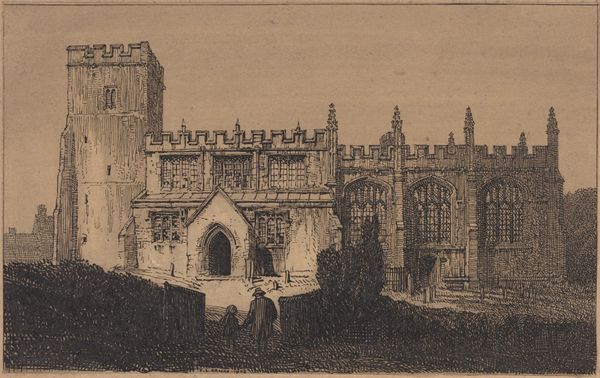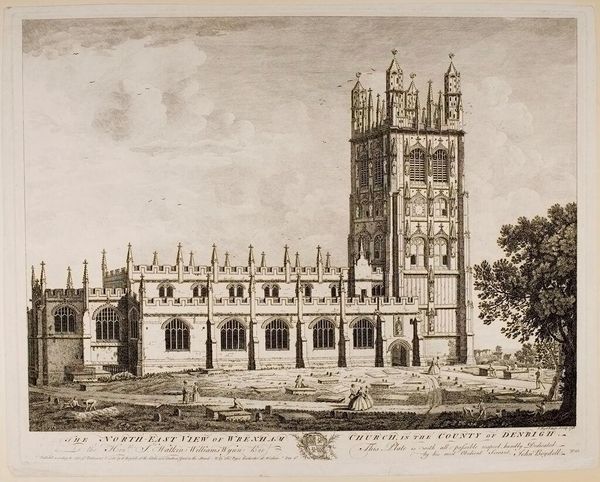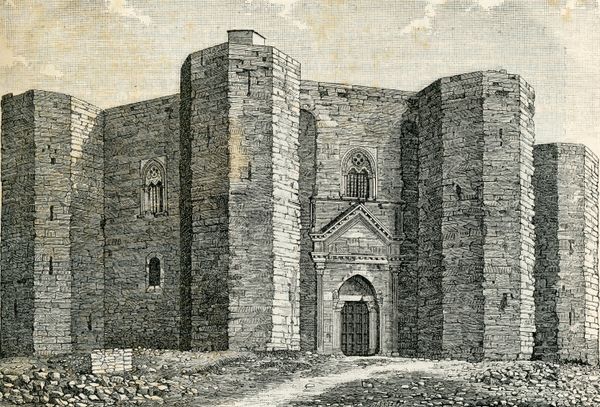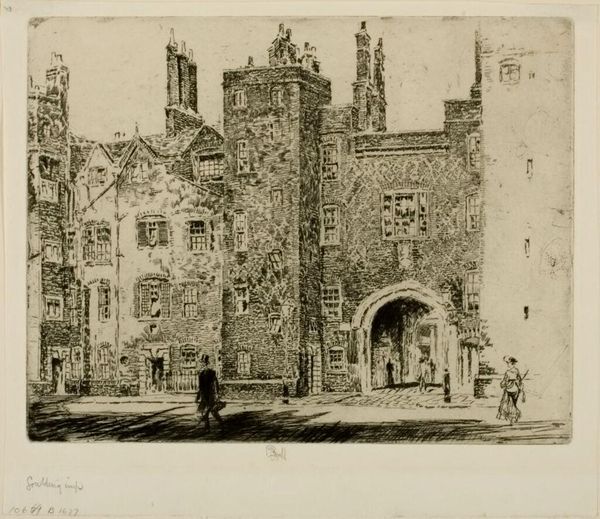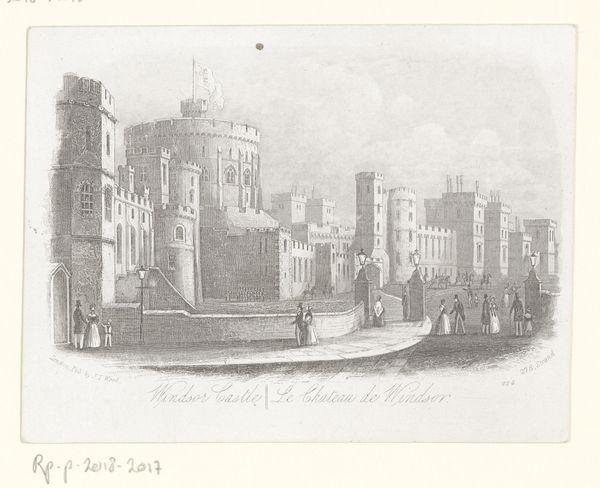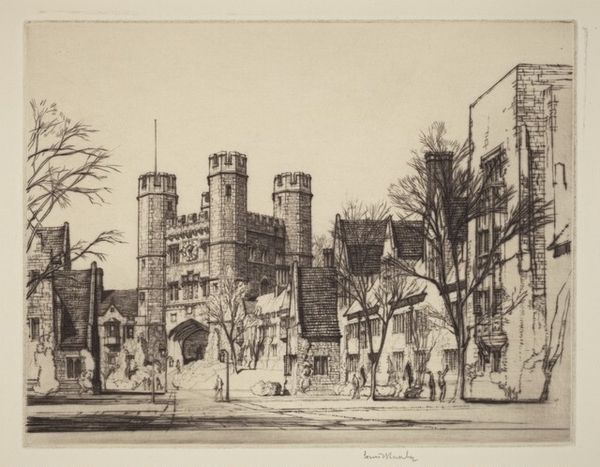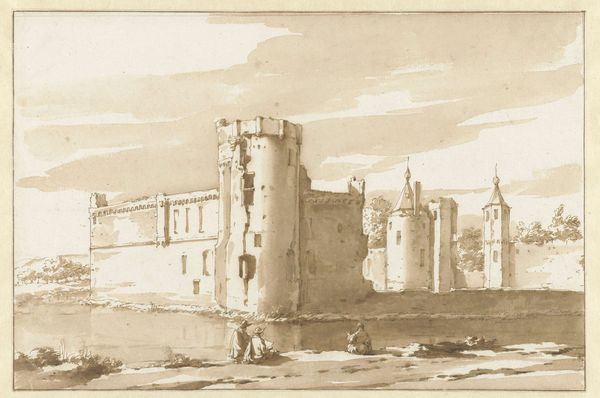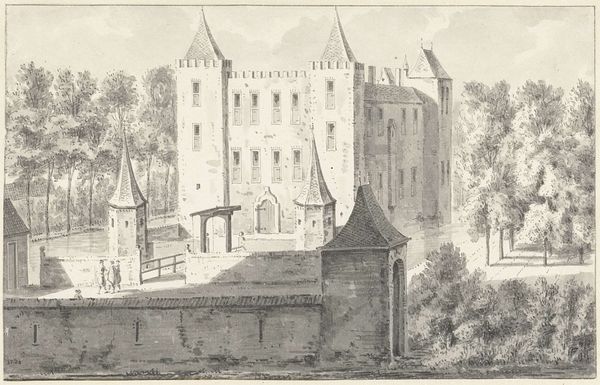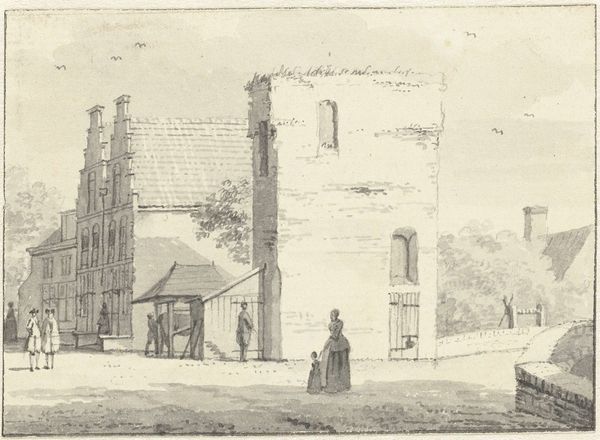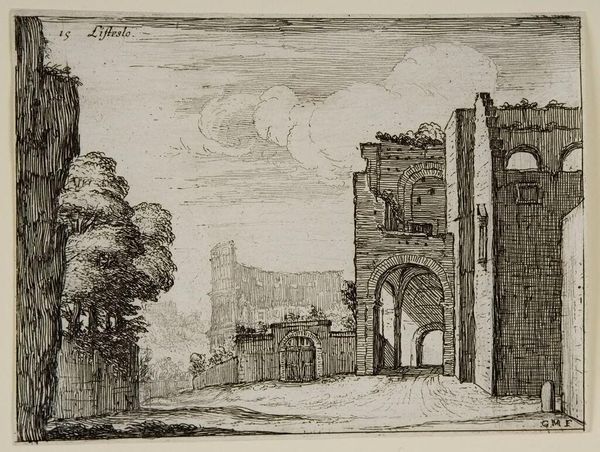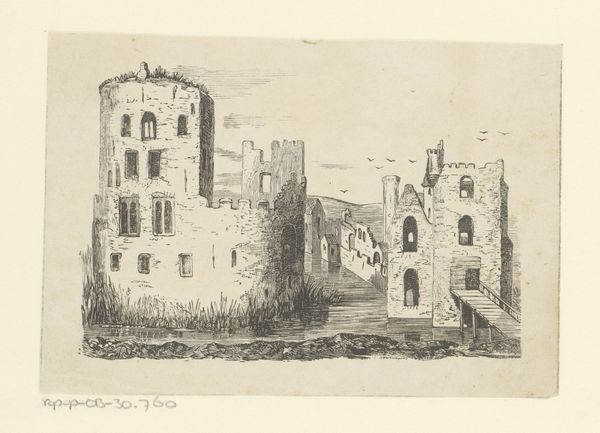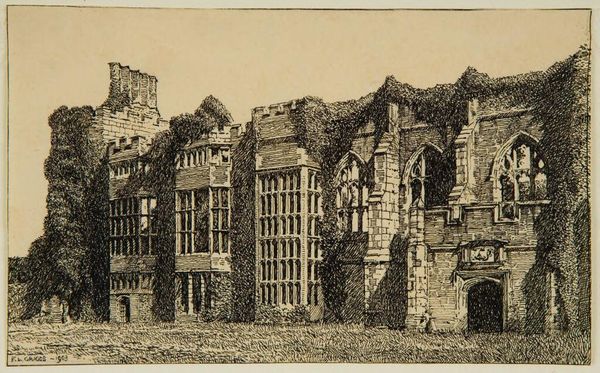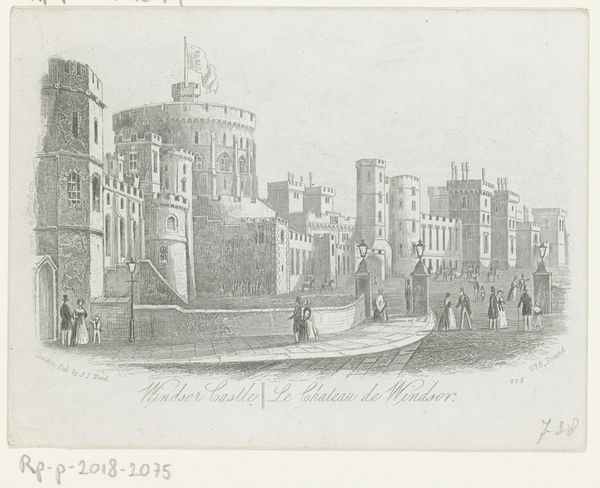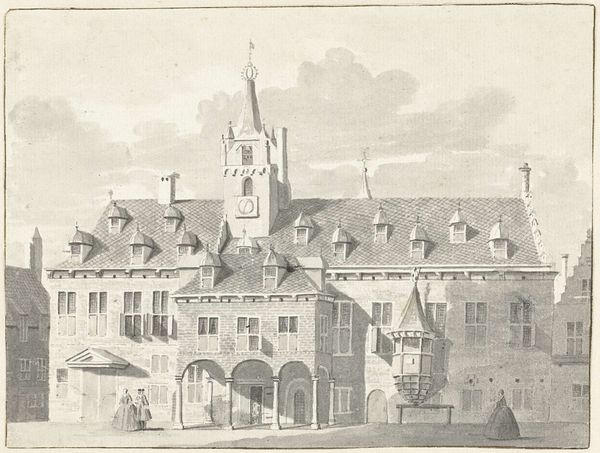
drawing, ink, engraving, architecture
#
architectural sketch
#
drawing
#
perspective drawing
#
neoclassicism
#
ink
#
geometric
#
pen-ink sketch
#
architectural section drawing
#
architectural drawing
#
architecture drawing
#
cityscape
#
engraving
#
architecture
Copyright: Public domain
Editor: This is Giuseppe Barberis' "Antica Porta Palatina," created in 1890, seemingly using ink and engraving techniques. The formidable architectural drawing immediately suggests themes of civic pride, perhaps even defensiveness. What strikes you about this portrayal of a city gate? Curator: This piece, being from 1890, exists in a very interesting historical moment. The depiction of the ancient Roman gate reflects more than just architectural interest; it shows the 19th-century's fascination with origins, with visually anchoring the present in a powerful, often romanticized, past. How might this depiction relate to the development of Turin at that time? Editor: You're saying that the "Antica Porta Palatina," rather than solely existing as an architectural representation, actively engages with the urban development and the public image of Turin. Is it then less about accurate historical documentation, and more about…city branding, perhaps? Curator: Exactly! Think about the politics of urban space. What kind of message does choosing this monument, the Roman gate, send versus another monument from a different era? Which narratives get privileged when a city foregrounds certain symbols? Does this depiction attempt to visually legitimize particular powers or groups, and if so, how? Editor: It becomes a tool for the city to project an identity, intertwining the grandeur of Rome with its contemporary aspirations, shaping civic identity, or solidifying the present by literally building on its antique roots! I hadn't considered how political architecture could be through artistic interpretations. Curator: Indeed. And thinking critically about why certain images get produced and circulated offers a powerful lens on a city's evolving identity and power structures. Editor: I see. This image opens the way for thinking about how public artworks function within cultural and historical narratives.
Comments
No comments
Be the first to comment and join the conversation on the ultimate creative platform.
